You all know that unprotected sex is not a good idea. You may hear it a million times from your teachers, or parents, but it is still easy for you to look down those worst-case scenarios. According to a study, 3 in 10 teenage girls will become pregnant before they turn 20. Every year, 20 million new cases of STIs are diagnosed, and about half of these cases occur in young people between the ages of 15 and 24. Therefore, learning how to have safe sex is very important for young people, especially teens.
- 17 Tips How To Seduce A Man Sexually In Bed With Eyes & Touch/ 19 Best Sex Tips For Married Couples To Fire Up Your Love
Sexual Health Information For Teens: What Teens Should Know
In this article, Healthy Guide will show you some of the best tips and facts that are related to sexual health for teens. Actually, all of these tips are effective in protecting against the spread of sexually transmitted infections and pregnancy.
CONTENTS
- 1. Safe Sex Is Not Just About Birth Control
- 2. How To Use Condoms
- 3. Contraception And Having Safe Sex
- 4. You Have Higher Risks Than You Realize
- 5. Most Birth Control Methods Cannot Prevent STIs
- 6. Condoms Are Not Foolproof
- 7. Talk To Your Partner About Safe Sex
- 8. Use Emergency Contraception
- 9. Are You Ready For Sex?
- 10. Sex And Drugs And Alcohol
1. Safe Sex Is Not Just About Birth Control
This should be the first one among sexual health information for teens that we want to mention in this article. According to a study [1], preventing pregnancy is very important for teens, but it is not the only thing that you should consider when it comes to having safe sex. Safe sex includes preventing STIs, getting tested for STIs, preventing unwanted pregnancy, and ensuring that you and your partners have good communication. Although it may sound strange when it comes to safe sex, abstinence is the only 100% safe bet.
Read on Top 37 Things Women Need To Know About Sexual Health to discover some of the important things women should know about sexual health.
2. How To Use Condoms
Condoms are known as one of the most effective forms of contraception. Before you consider using them, you should know some useful information about condoms.
- Condoms are the most common method of contraception
- There are many different types of condom
- You can buy condoms in chemists and supermarkets
- Condoms help in stopping sperm from reaching an egg. It also creates a barrier to prevent sexually transmitted infections.
- You should always use condoms during oral sex, anal sex or sharing sex toys.
- Using condoms do not negatively affect fertility levels.
- To avoid splitting, condoms need to be used correctly
- It is a good idea to use condoms combined with a long acting contraception.
List of 7 Tips On How To Put On A Condom Without Breaking It, Without Going Soft And Without Being Awkward will show you the ways to put on a condom without breaking it, so check it out!
3. Contraception And Having Safe Sex
Using contraception is very important for ensuring that teens have safe sex with their partners. Contraception can help stop unwanted pregnancy as well as prevent sexually transmitted infections. When used correctly, contraception is very effective.
Whenever teens have sex, they should use contraception in order to prevent both pregnancy as well as STIs, unless they want to have a baby. When two young men have sex together, they should have safe sex by using a condom to protect against STIs. When two young women have sex together, they should use a condom when they share sex toys and have oral sex.
If teens have unprotected sex, they may be at higher risk of pregnancy or STIs. So, in case you have recently practiced unprotected sex, you should use emergency contraception. Besides, it is important to find the right form of contraception for both you and your partner. You can seek sexual health advice from your school nurse or sexual health clinic.
If you want to know causes of irregular periods during breastfeeding, before and after marriage, read on 24 Causes Of Irregular Periods During Breastfeeding, Before & After Marriage
4. You Have Higher Risks Than You Realize
Another one among sexual health information for teens is that you have higher risks than you realize. When it comes to having safe sex, one of the mistakes people make is to assume the rules for only applying penis-to-vag intercourse. However, you should take some steps to protect yourself when it comes to safe sex. According to a study, safe sex means using condom during anal or vaginal intercourse and oral sex. Besides, sexually transmitted infections including chlamydia, HPV, syphilis and gonorrhea can be transmitted when having any genital contact. Therefore, you should always use a condom to protect yourself.
To know some of the home remedies for gonorrhea in both men and women, read on 17 Natural Treatments For Gonorrhea In Males And Females
5. Most Birth Control Methods Cannot Prevent STIs
Dental dams, female condoms and male condoms can be effective in preventing the spread of STIs. Therefore, if you are using any method of birth control apart from those mentioned above, you are still at risk. For example, birth control methods such as IUDs, the pill, the patch, the shot, the vaginal ring and implants do not protect yourself against sexually transmitted infections. They are just effective in preventing unwanted pregnancy; therefore, you should also use condoms or other methods to prevent the spread of STIs.
Read More: 17 Emotional & Negative Side Effects Of Birth Control Pills For Breastfeeding
6. Condoms Are Not Foolproof
When it comes to sexual health information for teens, you should know that condoms are not foolproof. Using condoms may be effective in reducing your risk of getting an STI, but they are not indestructible. To be safe, you should check the expiration date of your condoms, and you should avoid using baby oil, petroleum jelly, or other lotions that are able to break down latex condoms. Also, according to a research [2], you should keep your condoms away from the direct heat and use the right condoms. If male teenagers are using male condoms, these condoms should cover their entire penis.
7. Talk To Your Partner About Safe Sex
It may be difficult, but if you want to be intimate with somebody, you should talk openly to them about your sexual history, how you plan to protect yourself, and who is responsible for buying condoms. This conversation should occur before foreplay in order to make sure that both of you have the same expectations. However, keep in mind that it is never too late to talk about protection.
8. Use Emergency Contraception
If you have practiced unprotected sex and you do not want to be pregnant, you can consider using the emergency hormonal contraceptive pill that can be used up to three days after unprotected sex. These pills are more effective when you take them sooner. Also, keep in mind that only women can take emergency contraception and emergency contraception should not be used regularly.
9. Are You Ready For Sex?
According to the law, the age of sex consent is 16. However, when you are 16 years old, that does not mean you are ready to have sex. You may feel like everybody around you is having sex, but that is not surely the fact. You do not feel pressured into having sex with somebody until both you and your partner are ready.
10. Sex And Drugs & Alcohol
Sex and drugs and alcohol is another sexual health information for teens that you should know. If you often drink alcohol and use drugs, you may not make right decisions and then take risks. You may feel that these drugs and alcohol give you confidence and then you will be able to have unsafe sex. To keep you safer, you should apply the following tips:
- Do not accept drinks from strangers or leave your drinks unattended
- Be careful when using drugs or drinking alcohol because they can be highly addictive
- Be aware of your surroundings
11. Know More About Sexually Transmitted Infections
There are lots of important things that you should know when it comes to learning sexually transmitted infections.
- There is more than one way to get an STI: According to a study [3], sexually transmitted infections are infections that pass on from one person to another one via unprotected sex or genital contact. Therefore, if you have practiced sexual contact, either non penetrative sex with condom or penetrative sex, you may catch an STI.
- There are some symptoms of STIs: If you have bumps, lumps, problems with passing urine or unusual discharge, or other body changes that are unusual for you, you had better seek medical advice.
- In some cases, there are no signs of STI’s: Sometimes, you may not notice any physical signs or changes that show that you have caught STI’s. The only way for you to know for sure is getting tested
- STI’s testing and treatment: Testing is easy and painless. Most STI’s can be managed and treated with medication. In some cases, you do not need to have an examination. A blood test and a urine sample test is all that is required.
- STI’s should be treated quickly: The sooner STI’s are cured, the less long term damage will cause. If left untreated, some sexually transmitted infections can lead to health problems.
- You can have more than one sexually transmitted infection at one time.
12. Things To Check Before You Use A Condom
Before using a condom, you should check the following things in order to help you stay safe:
- Check the date: Before using a condom, you should check whether it is in date. If it is out of date, throw it away. Expiry dates are often printed onto the package of the condom.
- Check the packaging: You do not use a condom if its packaging is damaged. You do not use a condom if it is open, or has any holes.
- Check the CE mark on the packaging: Safe condoms often carry a European CE mark.
- Check for a BSI kite mark: This means that the condoms you are using have been tested in terms of manufacturer’s quality and production standards, so they are safe to use.
- Use a new condom whenever you have sex: You never reuse a condom or use a condom that has already been opened.
- Be careful when you open the wrapper of the condom: When you open a condom, you should push it to the side before you open the packaging. This way can help prevent damaging your condom. Also, remember to be careful because long finger nails can damage your condom.
- Put the condom on the right way round: If you put it on the wrong way round, you should take it off and bin it. You never turn it the other way round because it can contain pre-ejaculation and sperm. Instead, start again and take a new condom.
Actually, this is known as one of the sexual health information for teens that we want to mention in this article and want all of my readers, especially teenagers to apply for good.
13. Modern media And Sex
According to a research [4], television and the Internet are important for the life of children and teenagers. Through them, teenagers receive lots of information about sexual health. Some of them are positive and accurate while some of them are negative or incorrect. Nowadays, television professionals also give messages that can help teenagers make healthy decisions about sexuality. Also, high-quality websites can offer teenagers accurate information and health services.
According to a survey, 65% of teenagers from 15 to 17 said they had information about safe sex and birth control from advertising, 58% from television, 58% from magazine articles and 39% from the Internet. Teenagers from the ages of 13 to 15 ranked entertainment media as their main sources to get information on sexual health and sexuality. Among surveyed teenagers, 51% of females and 33% of males sought up online information on sexual health related topic, including birth control, pregnancy, HIV or sexually transmitted infections. Actually, media can have positive effects on teenagers’ knowledge and decisions about sex. And, modern media is trying to provide accurate information on sexual health.
14. Birth Control Options
When it comes to the topic of teenagers and sex, it is important to talk about birth control options. Whether you decide to wait or have sex, ensure that you know how to prevent unwanted pregnancy and protect yourself from sexually transmitted infections.
Here are some common birth control options that you can consider using:
- Condoms: Remember to use condoms during sex, even if you are using another form of contraception. Actually, correct use of condoms is known as the most effective way to help teenagers protect themselves from STIs and unwanted pregnancy.
- Prescription contraceptives: They can help prevent unwanted pregnancy. They include intrauterine devices, a contraceptive implant, the contraceptive patch, combination birth control pills, the contraceptive injection and the vaginal ring.
- Emergency birth control: Emergency contraception must be used as soon as possible after unsafe sex.
- Natural family planning: It involves abstaining from sex during the most fertile days. This method is not as effective as prescription birth control and it does not offer protection from STIs. Besides, teen girls often do not have regular menstrual cycles, making it difficult to assess the signs of fertility [5].
If you are a teen and you are considering having sex, you should apply the practical tips as mentioned above. Also, you need to remember that use of alcohol as well as other drugs can affect your judgment and simultaneously increase the risk of getting a sexually transmitted infection.
After reading this interesting article, we hope that all of my readers, especially teenagers can know some of the best tips on how to have safe sex. Actually, all of these tips are effective in preventing the risks of getting pregnancy and sexually transmitted infections; therefore, you should not look down them. Instead, try to apply these tips and simultaneously share them with other teenagers around you as soon as possible.
One more thing, if you know other sexual health information for teens, you remember to share them with us by leaving your comments in the comment box below. If you want to know more about tips and facts related to sexual health, you can visit our Sexual Health Category.

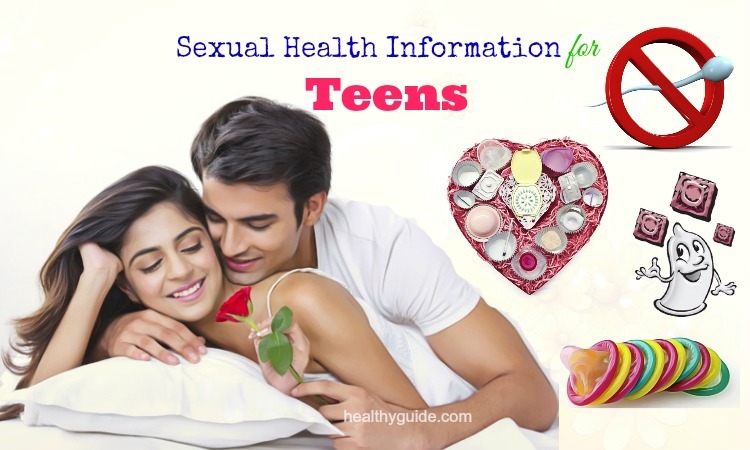
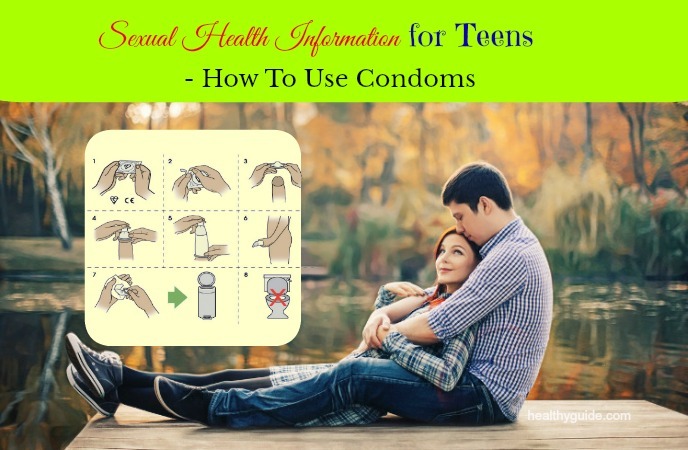
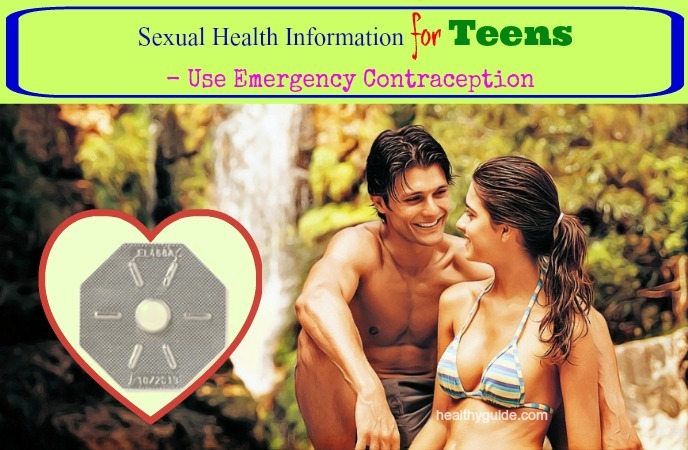

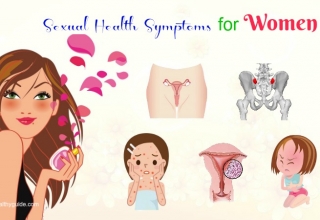

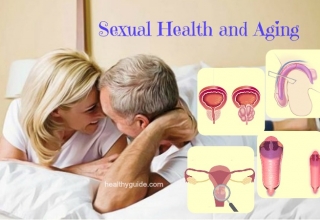



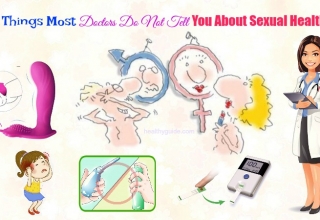
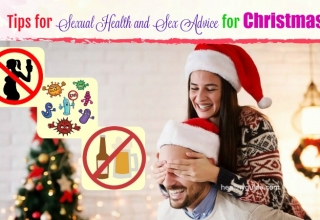
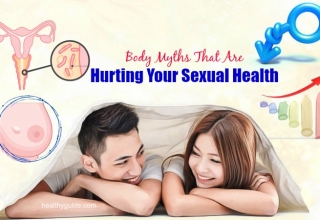


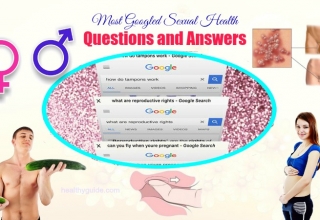


















Leave a Reply